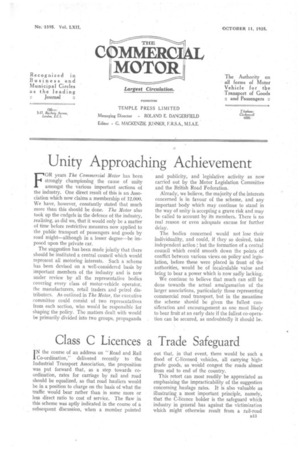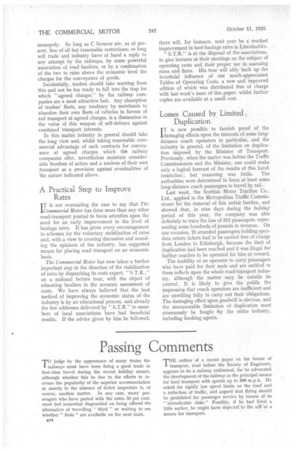Class C Licences a Trade Safeguard
Page 27

Page 28

If you've noticed an error in this article please click here to report it so we can fix it.
IN the course of an address on "Road and Rail Co-ordination," delivered recently to the Industrial Transport Association, the proposition was put fonvard that, as a step towards coordination, rates for carriage by rail and road should be equalized, so that road hauliers would be in a position to charge on the basis of what the traffic would bear rather than in some more or less direct ratio to cost of service. The flaw in this scheme was aptly indicated in the course of a subsequent discussion, when a member pointed out that, in that event, there would be such a flood of C-licensed, vehicles, all carrying highgrade goods, as would congest the roads almost from end to end of the country.
This retort can most readily be appreciated as emphasizing the impracticability of the suggestion concerning haulage rates. It is also valuable as illustrating a most important principle, namely, that the C-licence holder is the safeguard which industry in general has against the victimization which might otherwise result from a rail-road monopoly. So long as C licences are, as at present, free of all but reasonable restrictions, so long will trade and industry have at hand a reply to any attempt by the railways, by some powerful association of road hauliers, or by a combination of the two to raise above the economic level the charges for the conveyance of goods.
Incidentally, traders should take warning from this and not be too ready to fall into the trap for which " agreed charges" by the railway companies are a most attractive bait. Any absorption of traders' fleets, any tendency by merchants to abandon their own fleets of vehicles in favour of rail transport at agreed charges, is a diminution in the value. of this weapon of self-defence against combined transport interests.
In this matter industry in general should take the long view and, whilst taking reasonable commercial advantage of such contracts for conveyance at agreed charges which the railway companies offer, nevertheless maintain considerable freedom of action and a nucleus of their own transport as a provision against eventualities of the nature indicated above.




























































































